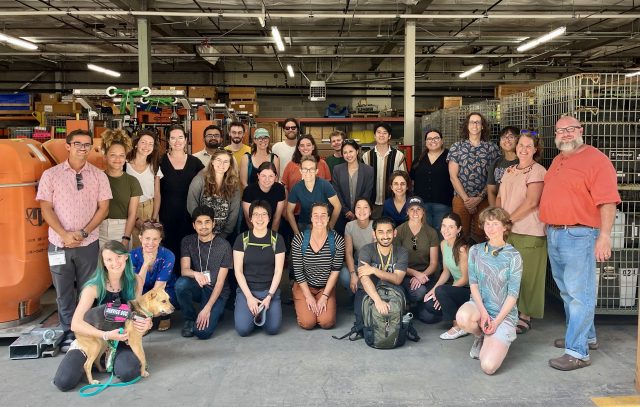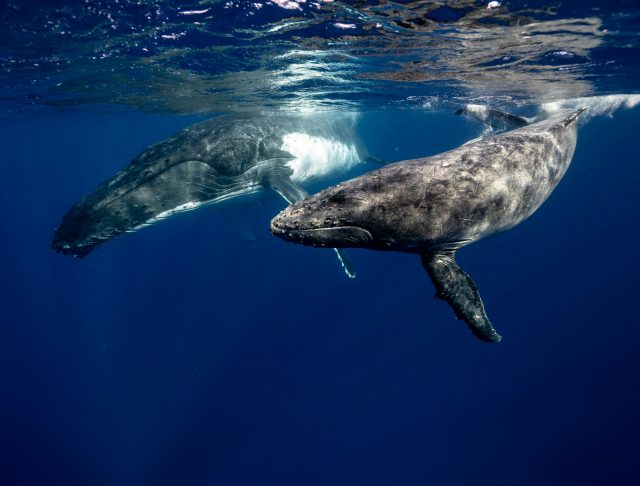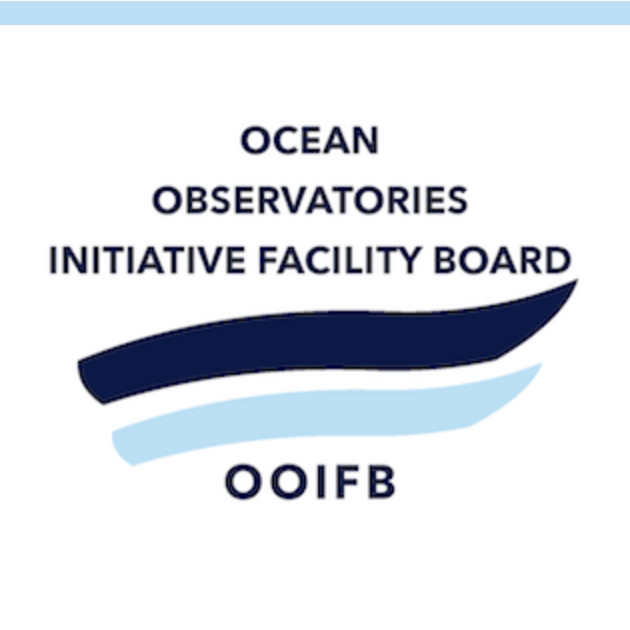Posts Tagged ‘OOIFB Workshop’
2025 OOIFB Summer School on Acoustics
From July 14-18, 2025, the U.S. National Science Founded funded OOI Facility Board (OOIFB) hosted an immersive summer school at the University of Washington in Seattle, bringing together early-career ocean scientists to explore the science and applications of underwater acoustics using Ocean Observatories Initiative (OOI) data.
Co-chaired by Dr. Wu-Jung Lee and Dr. Shima Abadi of the University of Washington, the program combined targeted lectures, hands-on tutorials, and real-world exercises to build participant expertise in accessing, processing, and interpreting both active and passive acoustic datasets including those from echosounders, hydrophones, and bioacoustic sonars available through the OOI network.
Over five days, participants gained:
- Core knowledge on underwater sound propagation and the main factors influencing it.
- Familiarity with the range of acoustic instruments deployed in the OOI network.
- Practical skills in navigating OOI data portals to access and download acoustic and complementary oceanographic datasets.
- Experience working with OOI datasets in JupyterHub, building Python skills and reinforcing coding as a core part of the program.
- Insights into scientific questions that can be addressed using OOI data.
- Connections with a community of researchers using OOI data in their work.
Participants
This year’s program welcomed 23 advanced graduate students, postdoctoral fellows, and early-career scientists from diverse research backgrounds. While geared toward those with an interest in underwater acoustics, the school was designed to be accessible, with no prior deep expertise required and high-level primers on underwater acoustics provided.
Looking Ahead
Archived materials, including the full agenda and select summer school resources, will be made available in the coming months for the broader research community.
The OOIFB Summer School on Acoustics exemplifies how targeted training can build a knowledge base in ocean acoustics research and broaden the use of OOI data in science and education.
[caption id="attachment_36880" align="alignnone" width="2560"] The 2025 OOIFB Summer School on Acoustics cohort at the OOI-RCA Sand Point Facility.
The 2025 OOIFB Summer School on Acoustics cohort at the OOI-RCA Sand Point Facility. [/caption]
[caption id="attachment_36895" align="alignnone" width="2560"]
[/caption]
[caption id="attachment_36895" align="alignnone" width="2560"]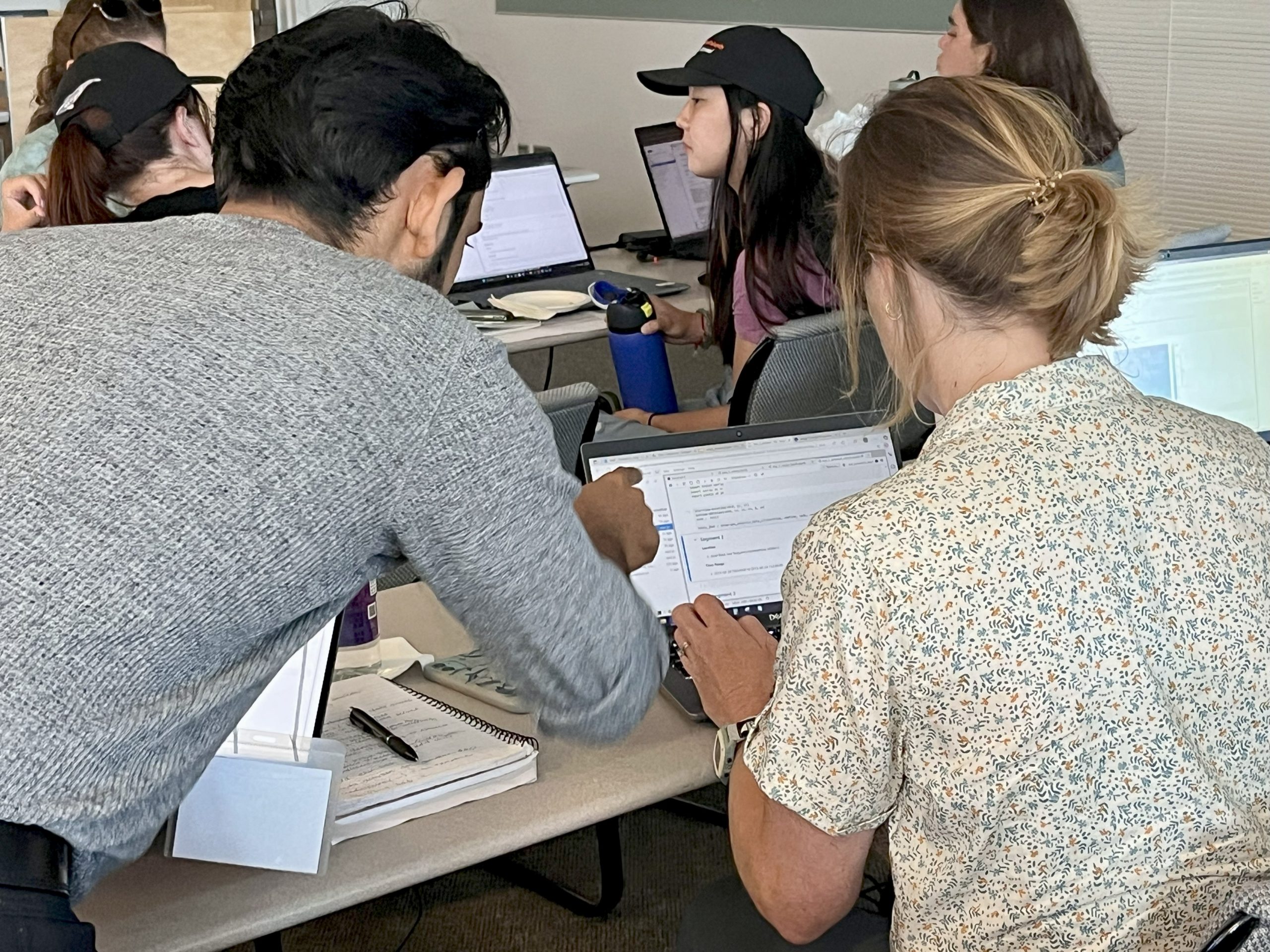 Students working through data exercises in the OOI JupyterHub environment. Credit: Holly Morin, OOIFB[/caption]
[caption id="attachment_36896" align="alignnone" width="2560"]
Students working through data exercises in the OOI JupyterHub environment. Credit: Holly Morin, OOIFB[/caption]
[caption id="attachment_36896" align="alignnone" width="2560"]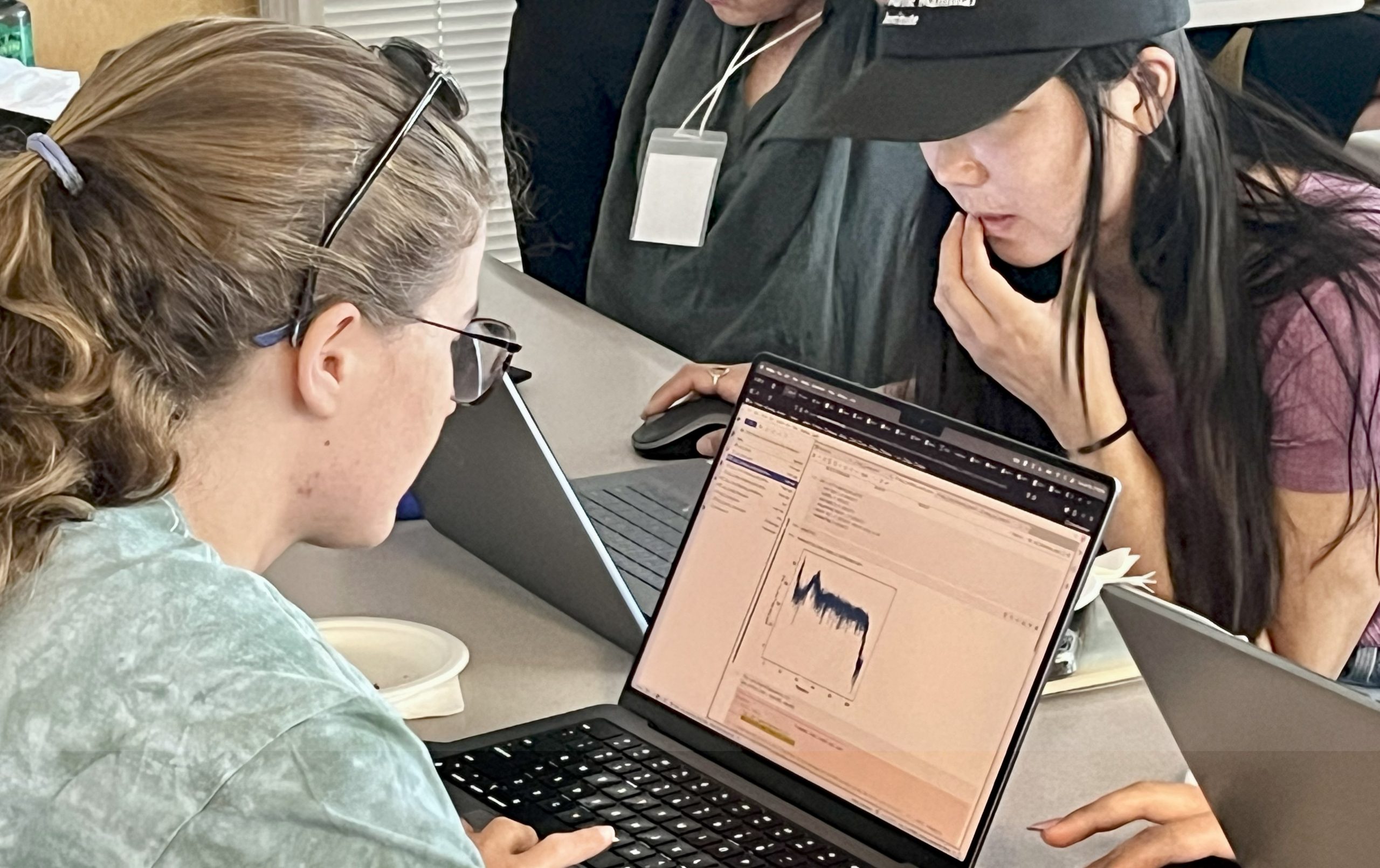 Students working through data exercises in the OOI JupyterHub environment. Credit: Holly Morin, OOIFB[/caption]
[caption id="attachment_36897" align="alignnone" width="2560"]
Students working through data exercises in the OOI JupyterHub environment. Credit: Holly Morin, OOIFB[/caption]
[caption id="attachment_36897" align="alignnone" width="2560"]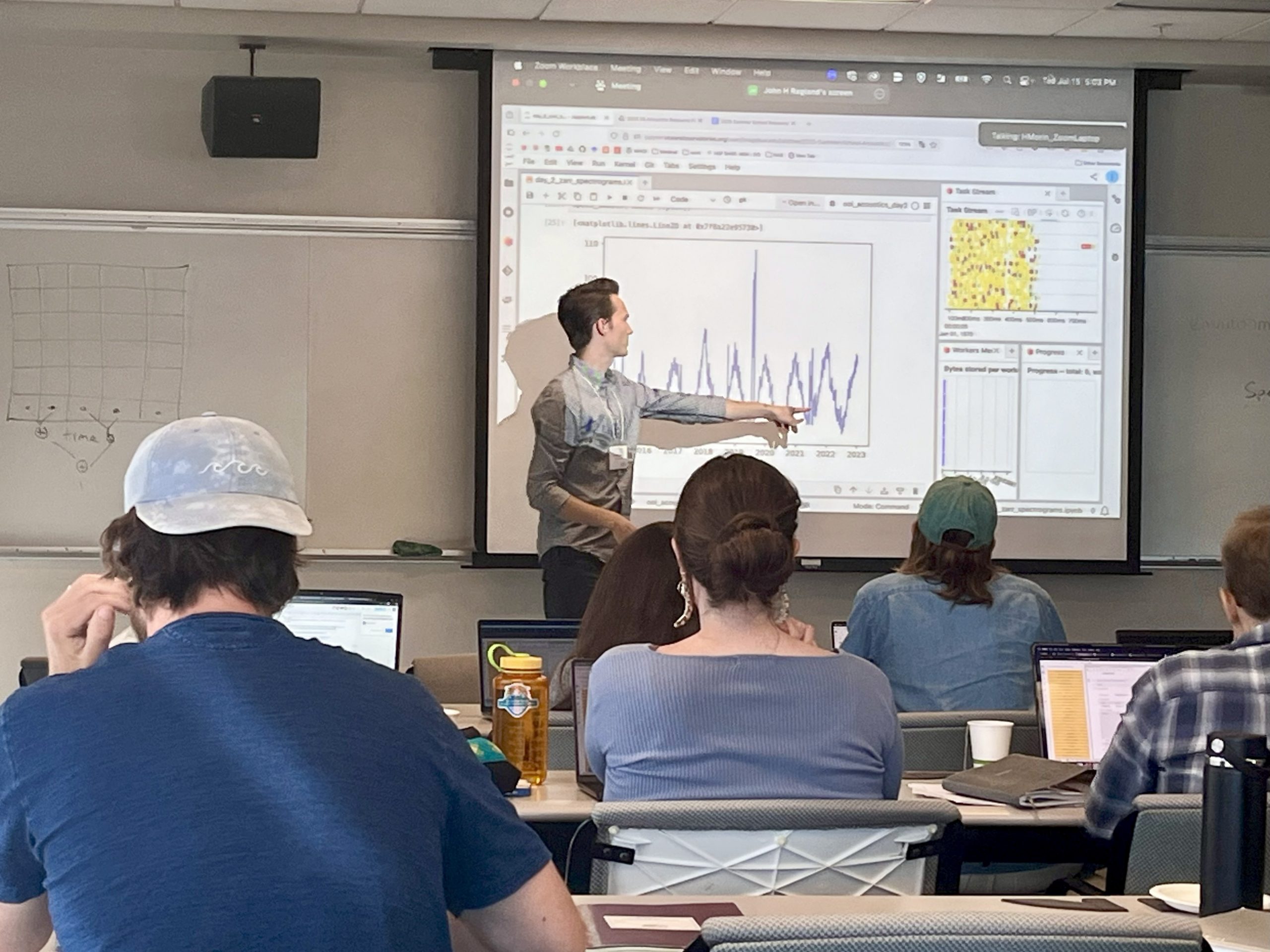 Dr. John Ragland works with participants to interpret outputs from a passive acoustic dataset. Credit: Holly Morin, OOIFB[/caption]
[caption id="attachment_36898" align="alignnone" width="2560"]
Dr. John Ragland works with participants to interpret outputs from a passive acoustic dataset. Credit: Holly Morin, OOIFB[/caption]
[caption id="attachment_36898" align="alignnone" width="2560"]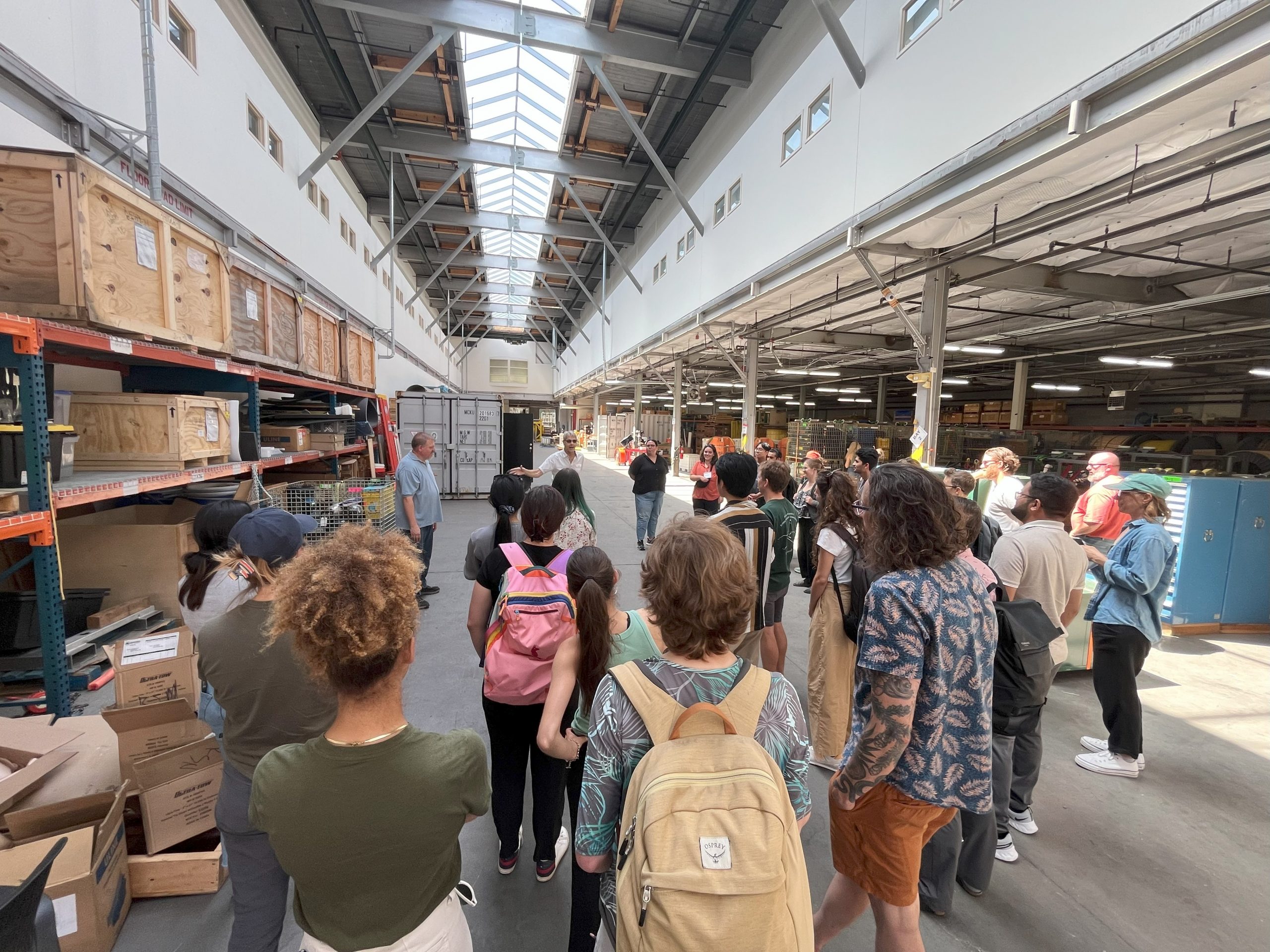 Participants tour the OOI-RCA Sand Point Facility. Credit: Holly Morin, OOIFB[/caption]
Read More
Participants tour the OOI-RCA Sand Point Facility. Credit: Holly Morin, OOIFB[/caption]
Read More OOIFB Imaging FlowCytobot (IFCB) Community Focus Group
The NSF-funded Ocean Observatories Initiative Facility Board (OOIFB) will host an Imaging FlowCytobot (IFCB) Community Focus Group from June 18-20, 2025, at the University of North Carolina, Wilmington’s Center for Marine Science. The OOIFB would like to convene ~ 25 members of the IFCB community to engage in:
- An introduction and overview of the OOI-IFCB instrument and its data, demonstrating how users can access and download OOI data (example IFCB data products will be shared).
- Guided tutorials and hands-on exercises working with use-case scenarios.
- Key conversations about IFCB community expectations for the NSF OOI (infrastructure and data), and what the NSF OOI expectations may be for the community.
2025 OOIFB Summer School on Acoustics: Applications Now Open
The Ocean Observatories Initiative Facility Board (OOIFB), funded by the U.S. National Science Foundation (NSF), is hosting the 2025 Summer School on Acoustics from July 14–18, 2025, at the University of Washington in Seattle, WA.
This five-day, in-person program will provide targeted lectures, hands-on tutorials, and practical exercises using real-world examples and NSF Ocean Observatories Initiative (OOI) data products. Participants will focus on accessing, analyzing, and interpreting acoustic data alongside complementary oceanographic datasets available through OOI.
By the end of the program, participants will have a deeper understanding of underwater sound propagation, passive and active acoustic instruments (e.g., hydrophones and echosounders) deployed through OOI, and the available datasets. They will also learn how to navigate OOI data portals, apply basic acoustic data processing methods, and explore how these data can support scientific research. The program also offers opportunities to connect with a professional network of researchers using OOI data.
There are no registration fees, and travel support is available for participants from U.S. institutions. For details on program requirements, eligibility, a draft agenda, and the application process, visit the OOIFB Summer School on Acoustics webpage.
Please share this opportunity with your colleagues and networks. For questions, contact Holly Morin (holly@ooifb.org).
Read MoreConnecting Science and Community: Key Insights from the OOIFB Pioneer MAB Workshop
The Coastal Pioneer Southern Mid-Atlantic Bight (MAB) Array Community Workshop, held from September 10-12, 2024, at Old Dominion University, brought together a diverse group of scientists, educators, and stakeholders to explore the potential of the Pioneer MAB Array in advancing oceanographic research in the region. Funded by the U.S. National Science Foundation (NSF) and dedicated to the memory of Dr. Larry Atkinson, the event organized by the Ocean Observatories Initiative Facilities Board (OOIFB), aimed to highlight the array’s capabilities, evaluate regional research progress, and promote collaboration within the ocean research community.
Workshop Focus and Objectives
The workshop offered an in-depth exploration of the Pioneer MAB Array, showcasing its measurement capabilities and ability to improve our understanding of the Southern Mid-Atlantic Bight’s complex oceanographic processes. Participants reviewed past research, discussed data access, and assessed current knowledge and gaps in the region, guided by insights from local stakeholders to align research priorities with community needs.
Day 1: Setting the Stage for Collaborative Research
The first day began with a dedication to Dr. Larry Atkinson, whose career laid the groundwork for many oceanographic initiatives in the region. The morning sessions featured an overview of NSF funding opportunities, encouraging participants to propose innovative research projects using OOI data.
The OOI presentations showcased the successes of past research and outlined the proposal process for adding instruments to the array. These discussions set the stage for deeper dives into key science themes, such as the dynamics of shelf-slope exchange, biogeochemical cycling, and the impact of extreme events like hurricanes, winter storms and freshwater outflows.
The afternoon was dedicated to breakout sessions, where participants engaged in discussions on specific science themes. These sessions allowed for the exploration of collaborative research ideas and the identification of potential projects that could leverage the capabilities of the Pioneer MAB Array.
Day 2: Harnessing Data for Research and Innovation
The second day focused on data access and utilization, with hands-on demonstrations of the latest OOI data tools. Participants were introduced to the OOI Data Explorer and other data access methods that facilitate the retrieval and analysis of complex oceanographic data. These sessions also highlighted the program’s approach to data quality assurance and control, ensuring that researchers have access to reliable and accurate information.
Breakout sessions offered practical experience with data access through various platforms including Jupyter notebooks. These tools enable researchers to leverage the rich datasets provided by the Pioneer MAB Array for a wide range of projects, from studying physical oceanography and biogeochemistry to investigating ecosystem dynamics and the effects of extreme weather events.
The day concluded with a panel discussion on the use of modeling in interdisciplinary projects, providing insights into how data can be integrated into complex models to better understand ocean processes.
Day 3: Expanding Broader Impacts and Future Directions
The final day of the workshop shifted focus to the broader impacts of using OOI data in educational and community contexts. Panel discussions explored innovative ways to integrate OOI data into K-12 and higher education curriculums, as well as engaging citizen scientists and the fishing community in data collection and its many uses. These sessions highlighted the potential for data-driven outreach and education programs to inspire the next generation of oceanographers and to raise public awareness of ocean science.
Key Takeaways
The workshop highlighted the Pioneer MAB Array’s potential to advance our understanding of the Southern Mid-Atlantic Bight and emphasized the importance of accessible data for researchers, educators, and citizen scientists. It effectively fostered collaboration within the scientific community, paving the way for new research initiatives that will propel scientific progress in the region for years to come.
[caption id="attachment_34869" align="alignnone" width="640"]
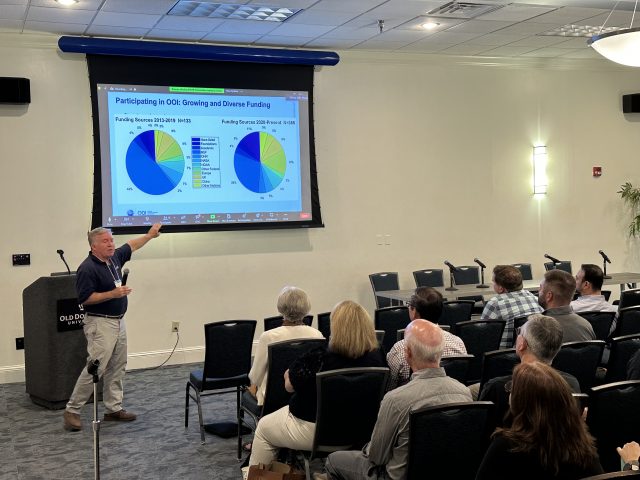 OOI Principal Investigator, James Edson[/caption]
[caption id="attachment_34866" align="alignnone" width="640"]
OOI Principal Investigator, James Edson[/caption]
[caption id="attachment_34866" align="alignnone" width="640"]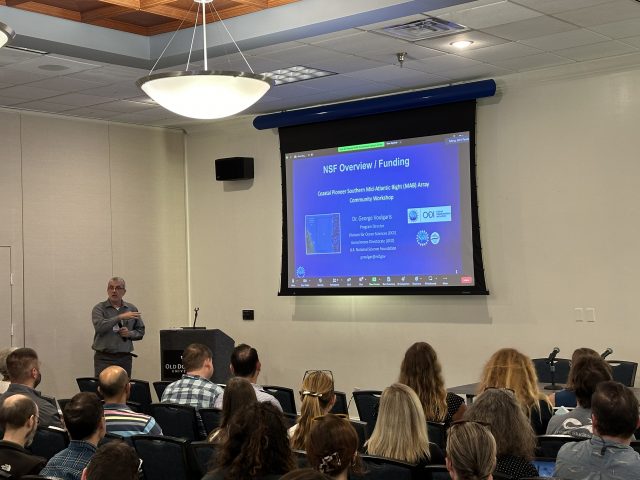 George Voulgaris, NSF OOI Program Director[/caption]
Read More
George Voulgaris, NSF OOI Program Director[/caption]
Read More Pioneer MAB Array Workshop Applications
Old Dominion University, Norfolk, VA
The Ocean Observatories Initiative Facility Board (OOIFB) will host a community workshop focusing on current and future initiatives that can be addressed using data from the National Science Foundation’s (NSF) OOI Coastal Pioneer Array, which is planned to be relocated to the Southern Mid-Atlantic Bight. The workshop will be held at the Webb University Center, Old Dominion University, in Norfolk, VA, on September 10-12, 2024.
The event will bring together a diversity of scientists, resource managers, educators, and other stakeholders to learn about the capabilities of the Coastal Pioneer MAB Array and the cutting-edge research that can be done in this new location. The workshop also will provide a forum to facilitate cross-network collaborations, identify strategies for better engaging current and future users of the NSF’s OOI, and foster the research and proposal development process. NSF OOI Program team members and NSF representatives will be on hand to answer questions and provide information on NSF OOI operations.
Researchers who are using or are considering using NSF OOI data; resource managers from national, state, and tribal agencies; and educators at all levels interested in using data from the NSF OOI Coastal Pioneer MAB Array are encouraged to participate in this community workshop. To apply for the workshop, please complete the online application form that is available on the workshop web page. Travel support is available, but limited. Broad representation from institutional, geographic, and disciplinary groups is desired and will be considered in participant selection. The deadline for applications is March 26, 2024.
Additional details about the workshop and agenda are available here. If you have any questions, please be in touch.
OOIFB Bio-Optics Sensor Summer School Happening Now
The OOIFB is hosting a 2023 summer school this week (July 17-21, 2023) at Oregon State University (OSU) in Corvallis focusing on OOI optical attenuation and absorption data. A mix of advanced graduate students, post-doctoral fellows, and early career scientists have traveled to Oregon to participate in a hands-on learning experience about how to access, analyze, and interpret data from the Sea-Bird AC-S. Data from the AC-S is used to characterize the absorption and scattering of light in seawater, which provides information on phytoplankton biomass in the measured ocean region.
The workshop’s daily agenda is jam packed. OSU Associate Professor and AC-S expert Andrew Barnard is leading the lecture portion of the workshop to ensure participants have a clear understanding of what the AC-S measures, how the instrument works, and how to interpret the collected data. Coastal Endurance Principal Investigator Ed Dever, who was instrumental in organizing the workshop, will also present an introduction to AC-S and related OOI measurements.
Each day participants are assigned data-related homework, so they can learn data analysis skills with the help of OOI data experts. OOI data experts Chris Wingard of the Coastal Endurance team and Wendi Ruef of the Regional Cabled Array are on hand all week to help participants work with the data. Data expert Jennifer Batryn of the Coastal and Global Scale Nodes Team will be lending a hand virtually.
OOI uses the Sea-Bird AC-S as its spectrophotometer, referring to it as “OPTAA: optical attenuation and absorbance instrument.” The optical attenuation and absorption data provides information on the relative biomass of different phytoplankton size classes and phytoplankton functional types, estimates of biogeochemical proxies, and may be used to validate remote sensing measurements. AC-S sensors are deployed on most of the OOI platforms, including coastal, cabled, and high latitude moorings and are a significant proportion of the overall sensors deployed.
Kendra Daly, OOIFB chair, who proposed the idea and helped execute the workshop said, “We thought what a great opportunity to gather OOI data experts, put them in the same room for a week with those wanting to use these data in their research, and watch the synergy happen! The experience is sure to have a multiplier effect. OOI data experts will benefit from the data users’ experience, while the data users will end up being OOI data experts themselves.”
To maximize the usefulness of the workshop, the workshop curriculum was made available online.
Read More
Applications Open for June Northeast Pacific OOIFB Workshop
The Ocean Observatories Initiative Facility Board (OOIFB) will host a workshop focusing on current and future science that can be addressed using data from OOI’s infrastructure in the Northeast Pacific and other regional observatory arrays. The workshop will be held at the OSU Portland Center in Portland, OR on June 7-9, 2022. This workshop was scheduled to be held in 2020, but was postponed due to the COVID-19 pandemic. The OOIFB is hopeful that in June 2022 members of OOI’s community can safely come together for a productive workshop. A hybrid model with in-person along with options for virtual participation is planned.
The workshop is aimed at researchers who are using or are considering using OOI data; resource managers from national, state, and tribal agencies; and educators at all levels interested in using data from the OOI’s Regional Cabled, Coastal Endurance, and Global Station Papa Arrays.
The workshop will inform the research community of the available data and science opportunities offered by the OOI and other observatory arrays located in the Northeast Pacific. An overview of OOI data products, user interfaces, and system features will be provided along with hands-on demonstrations using data access tools. OOI Program Team members and NSF representatives will be on hand to answer questions and provide information on OOI operations.
The workshop will provide a forum to facilitate science collaborations, identify strategies for engaging future users of OOI, and build cross-network collaborations. Community-building and expanding broader impacts will be discussed. Workshop participants will have the opportunity to provide feedback on their experiences in working with the OOI systems and data.
To apply for the workshop, please complete the on-line application form that is available on the workshop web page. Please indicate how you plan to participate in the workshop (in person or virtual) when completing the form. Travel support is available, but limited. Broad representation from institutional, geographic, and disciplinary groups is desired and will be considered in participant selection. The deadline for applications is March 20, 2022.
Additional details about the workshop and agenda are available here.

